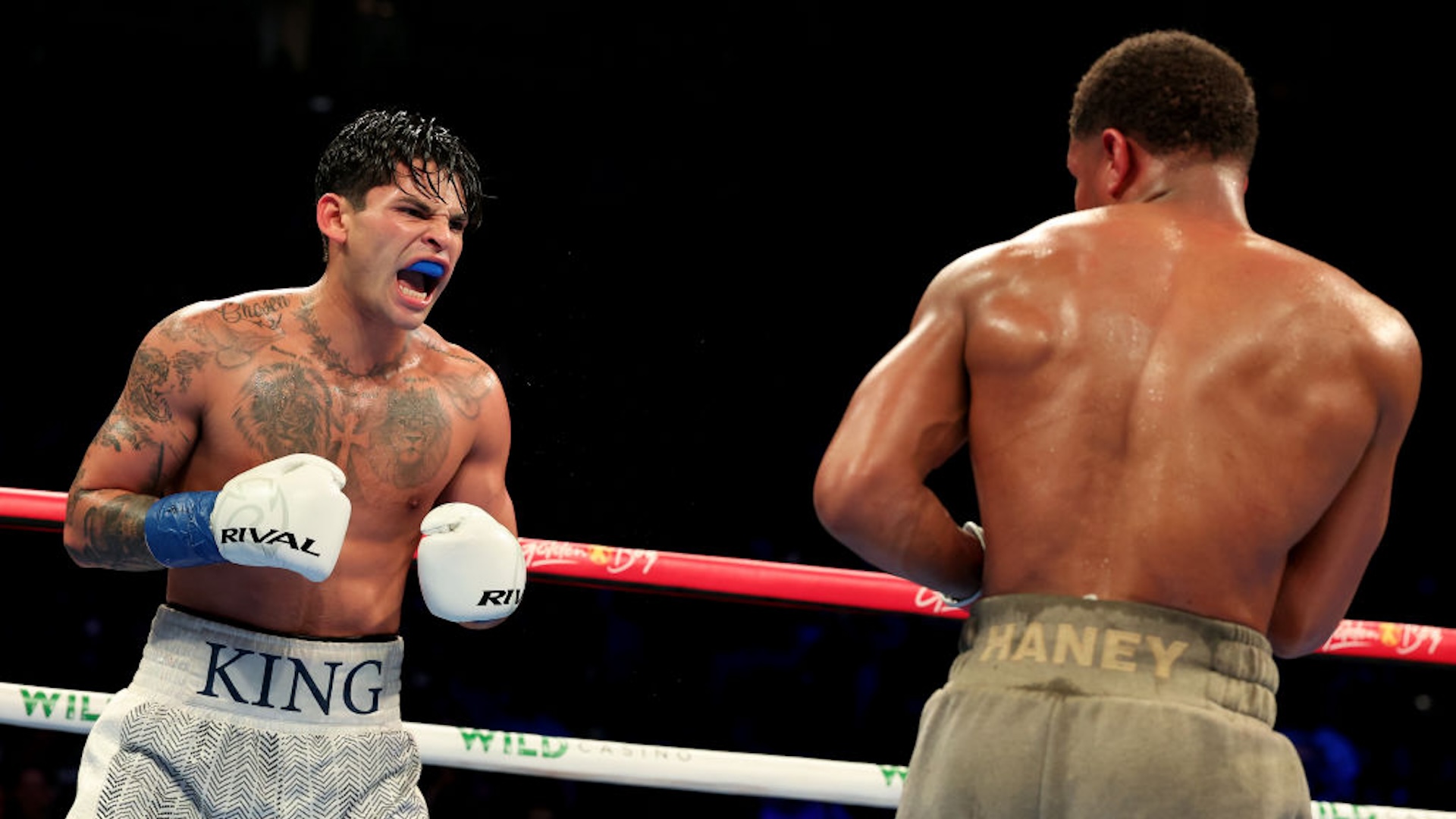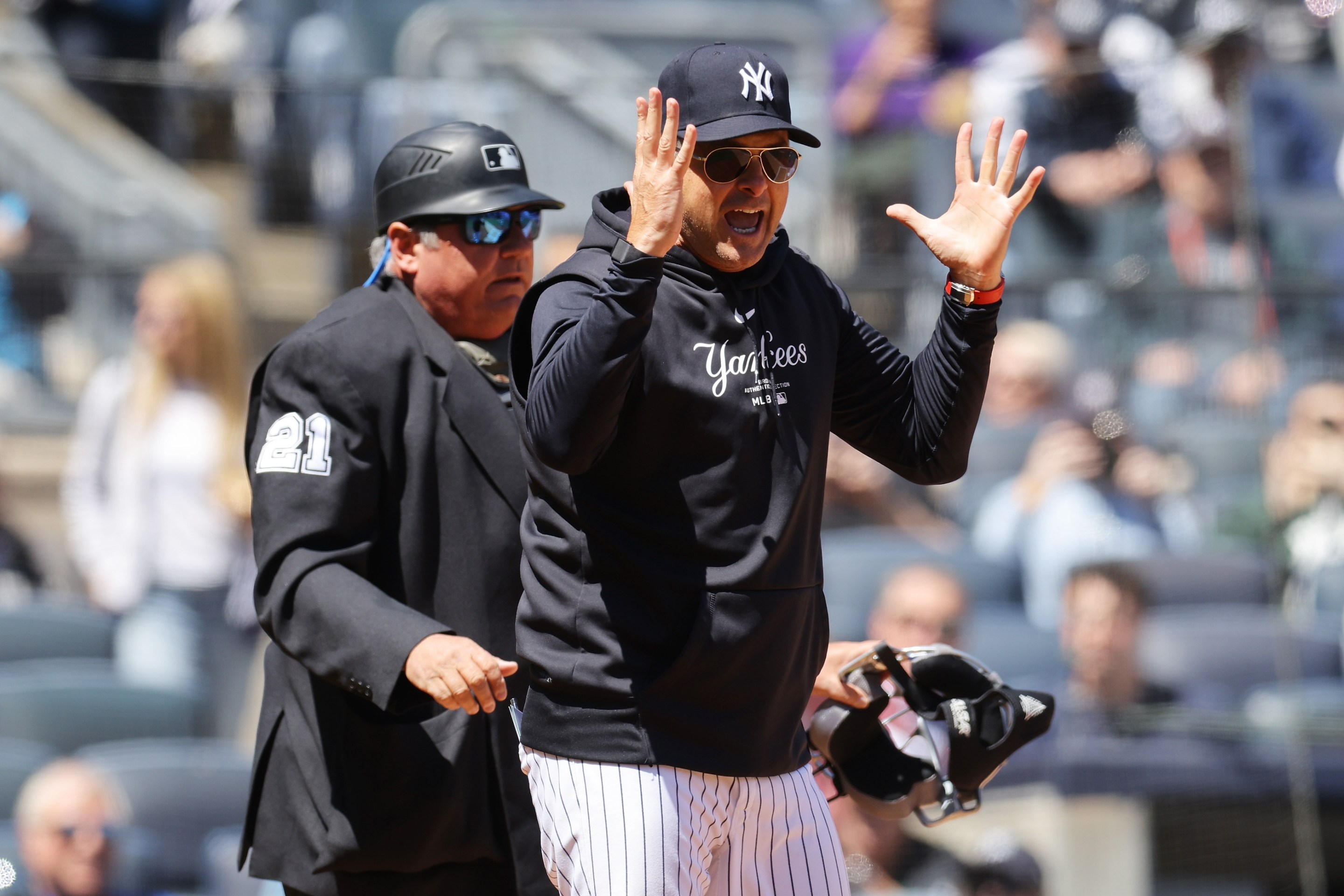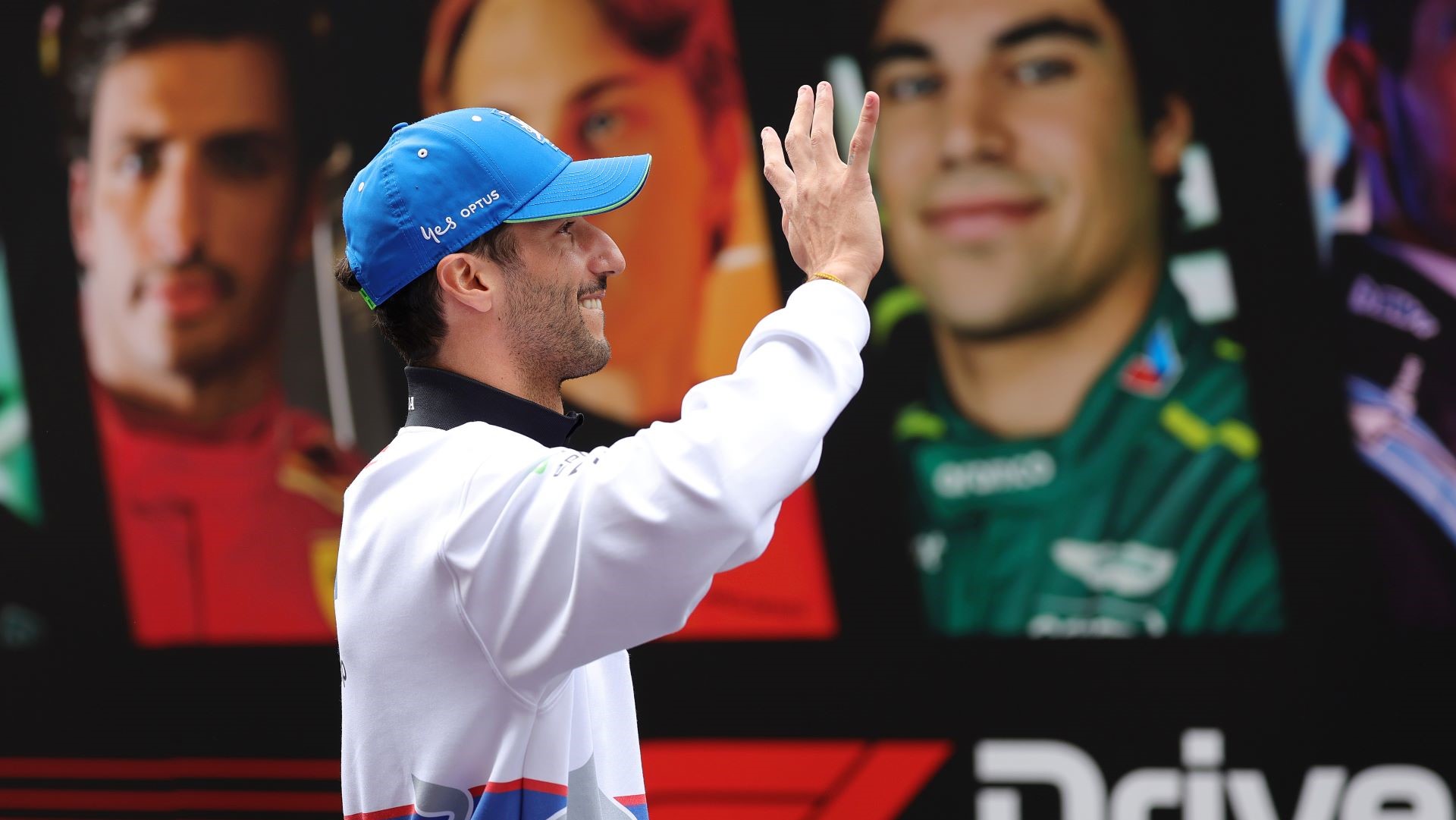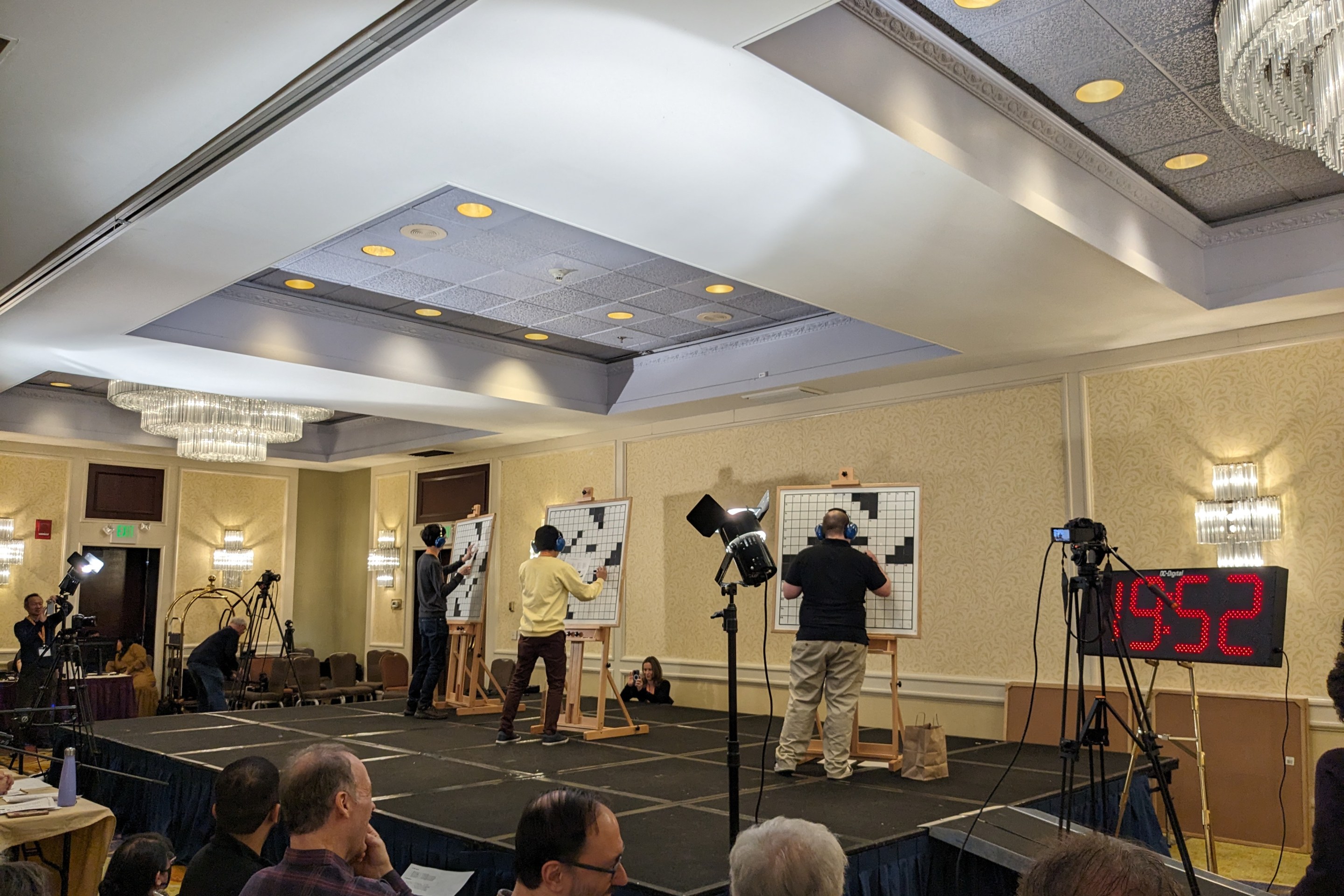The Best Things We Watched In 2021
1:08 PM EST on December 28, 2021
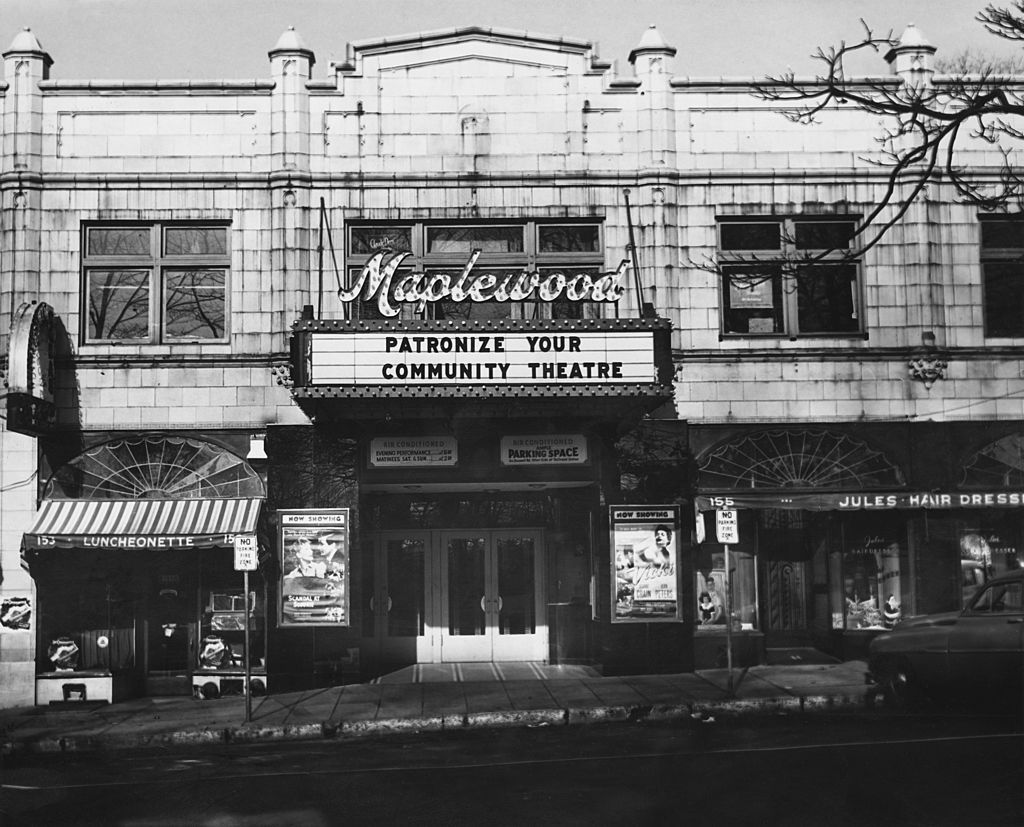
This is what the staff of Defector watched and enjoyed this year.
Shin Godzilla
It's hard to make a good Godzilla movie. The formula is generally pretty calcified, despite having been rebooted several times over the last 60-odd years. He knocks stuff over. The military tries and fails to stop him. Sometimes he fights another monster. Godzilla himself has become so ingrained in pop culture that it's hard to root against him, and he can only be positioned as a good guy so many times before it starts to feel like fanfic. One thing Godzilla movies are generally not, with one notable exception, is weird. So it was fascinating when 2016's Shin Godzilla tapped director Hideaki Anno, best known for being extremely weird.
Anno's stroke of genius here was to turn a Godzilla movie into a workplace farce. When Godzilla attacks Tokyo this time, the government springs into action … sort of. Endless meetings are held, where nothing is decided. Committees are formed, and subcommittees, and breakout groups, and they manage to undermine each other while coming up with mostly useless or self-defeating solutions. Politicians give speeches promising the crisis is under control, even as news reports come in that it most certainly is not. The staffers actually keen on getting something done are tied down by miles of red tape. And all the while the monster is evolving and destroying. It's as enjoyable a satire as it is a kaiju movie, and maybe the first "realistic" Godzilla: If a monster actually attacked today, it's easy to imagine a bureaucracy being so intractable as to be functionally useless.
Aiding things are a creature design as scary as Godzilla's ever looked, and a visceral sense of dread borrowing from the still-fresh tsunami and nuclear meltdown. They add a vitality not seen in this series since the very first film—a Japan wondering what it's become, and what it is or isn't capable of in the face of an existential threat. Not since 1954 has a Godzilla film been this much more than a monster movie. - Barry Petchesky
One Giant Leap
The Last Dance, Michael Jordan's ode to self-importance, did all the things you thought it would do—refocus our attention on Jordan as he eases toward his 60s, break up the monotony of COVID-powered sequestration, make him and ESPN a small bargeful of money and set a new target for longform cinematic preening that other athletes have sought to beat, either in length, episode, or take-home pay. In short, he has essentially ruined this expression of art as he ruined the reputation of Jerry Krause, the general manager who forgot who actually pays the bills while he was physically paying the bills.
In the wake of that breath-steal of videomatic excess, though, he inspired a Last Dance spinoff that found the one gap in the story worth rehearing, and that was the Australian Broadcasting Company's hour-long One Giant Leap, telling the almost-never-told story of Australia's Luc Longley, the Chicago center whose shadow was considered so insignificant that he was essentially omitted from The Last Dance. It came and went with only modest note, but had a much worthy tale to tell because while it was clearly Longley-centric, it contained a basic genuineness that the Jordan had replaced in his docu-excess with thinly clothed idolatry and image polishing.
And it was inspired by his almost complete absence from The Last Dance, a seeming slight that executive producer Caitlin Shea turned into a fulcrum for Longley's story. We say "seeming" only because the history of the Chicago Bulls cannot be told without mentioning Longley, but Longley's role in that story is easily crowded into the margins and footnotes. Maybe people would just rather stare at Dennis Rodman, wince at Scottie Pippen's revivified insecurities, look askance at Phil Jackson's practiced asceticism and Jordan's well-worn highlight reel.
But Longley's story might be better than all of them, and Shea not only told it deftly in one-tenth the time but even got Jordan (or more precisely, got Longley to reach out to Jordan when her own requests were rebuffed) to do those hardest of things—sit down, get mic'd up, open up, and admit insensitivity, however inadvertent, acknowledge error and attempt to make amends on Longley's behalf. He actually lowered his shields, at least a bit, on Longley's behalf in a half-hour interview with Shea, who retold the story of how it happened here.
It was that rarest of superstar interviews, one in which the intention was a make-good for someone who had deserved better that outright dismissal, and while Jordan doesn't exactly peel off his exoskeleton for us, he does acknowledge a debt that needed paying, a debt that he almost didn't realize he owed. Shea was brilliant in its creation and execution, Longley even better in the telling, and it makes one glad that Jordan and The Last Dance producers ignored Longley in the original drive-by because it created a need to tell this story as a proper and maybe ever better adjunct. It proved yet again that there are stories everywhere just needing someone to want to tell them. - Ray Ratto
The Green Knight
Here is a non-exhaustive list of things I dislike about movies: certainty, endings, faithful adaptations, characters saying the name of the movie within the course of the movie, diegetic music, explanations, CGI, and the non-casting of Barry Keoghan in a Barry Keoghan-ass role. Here is a non-exhaustive list of things The Green Knight has going for it: the correct casting of Barry Keoghan, ambiguity, an ever-shifting sense of "reality," mushrooms, unexplained phenomena (what's up with the big people?), and an anti-ending. So, a perfect movie for 2021.
At its core, this adaptation of The Green Knight is about fiction—the lies we tell ourselves, the myths we tell each other, the stories other people believe about us—and the dissonance created by both believing and not believing in those fictions. Dev Patel's Sir Gawain is seen by the world as a brave knight who slew a guy made out of a tree trunk, but in his heart, he knows he's not a legendary warrior. Worse yet, he knows—or maybe comes to learn—that legendary warriors are just that: legendary. He's just a hot guy who loves to drink and fight and screw, but that's not what he's supposed to be. His mother and King Arthur each play distinct roles in casting Gawain as a hero in an epic tale of killing a terrifying tree-man and then paying his debts by maybe being beheaded. Also this takes place on Christmas, so The Green Knight is a Christmas movie.
What happens in between the inciting deforestation and the half-ending is a delightful sidequest of a movie, the plot of which is way less important than the spooky, foreboding vibe. Gawain runs around and does stuff, which moves the action along but mostly provides director David Lowery a palette to paint in psychedelic reds and greens (wow, another Christmas tie-in). The substance of this movie is its visual heft, and while I assume it still works on a TV screen, the theater experience of seeing Patel dive into a magical pond to retrieve someone's lost skull was a special one. Play The Green Knight loud and let yourself be carried away. - Patrick Redford
The Other Two
I lost track of things early this year and only ever intermittently picked any of it back up. The fits and starts with which I returned to something that felt more like the life I lived before the pandemic are what differentiate this year from the last for me, and those few months are what I will remember if ever I choose for some reason to remember this year. The months in between, before and after, I will think of mostly as having been spent in a strange kind of waiting room that had been decorated to look and feel exactly like my own home.
I was in the waiting room for as much of 2021 as I was in 2020, more or less, and whereas in 2020 I took that time out seriously, or anyway tried to take it with as much grace and good cheer as I could manage, I couldn’t quite swing that for a second year. I was hung up on waiting for the real thing, which seemed always just a weekend or so away, and then on waiting for it to keep on moving in the direction in which I hoped it would move, and so I nudged and nibbled and never really got there except for a few weeks in the early summer, before it got bad again, and then a few weeks earlier this month, before I finally got COVID-19.
I don’t really regret any of what I got, if only because there’s no sense in getting mad about shit that you absolutely cannot change. I saw Paul Verhoeven’s endearingly berserk Benedetta in a movie theater and I watched Titus Andronicus play a show in New Jersey. I went to a big birthday party with my coworkers and the people that make our site work, and a smaller party with listeners of The Distraction, so I came out of the deal pretty well. But I wish, in retrospect, that I’d brought the relative seriousness with which my wife and I worked our way through watching various excellent things in 2020 into this year. I wrote about Lodge 49 last year, and still treasure the experience of watching it above just about any other TV experience. We also watched Patriot and ZeroZeroZero and the part of the berserk Robert & Michelle King legacy goof The Good Fight that they finished before the pandemic shut down production; I think about all three of those often, and I don’t really think about TV like that.
But that was last year, when we lived like winter was never going to end. This year, I lived like it was always about to, which means that not only did I watch a record-low number of movies by my standards—it’s a whole thing when you’re watching together, and neither of us felt up to it that much—but we didn’t even really apply ourselves to watching actual television. The best movie I watched this year was First Reformed, but that’s from 2018, and this is no time to be thinking about all that.
I had to think back through the frivolous TV we did watch and try to think about what I liked, or even remembered. I thought Girls 5Eva on Peacock was very funny. I also liked A.P. Bio and What We Do In The Shadows. But these are, albeit in different styles, all sitcoms. Funny ones, for sure, but definitely 30-minute sitcoms. This may be the sum of my year of watching things, in retrospect—some good sitcoms, Top Chef, a few movies in theaters, some Pitching Ninja overlays, half-noticed episodes of old USA Network shows running blithely in the background as my wife and I idly do work until such time as there are other things to do. It’s not what you want, but I think of all of it I enjoyed The Other Two the most.
As you might have guessed, it is a sitcom. It was created by a pair of former Saturday Night Live writers, Chris Kelly and Sarah Schneider, and started on Comedy Central before moving, in its second season, to HBO Max. It is not a complicated conceit. The show follows a pair of unsuccessful New York showbiz fringers, played by Drew Tarver and Helene Yorke, whose sweet and simple younger brother suddenly erupts into Bieberian success; this carries them and their sweet but dangerously sublimated mother (Molly Shannon) further into the business, which turns out not to behoove any of them, really. The people in it are all very funny, the jokes are lacerating everywhere they need to be and often stunningly weird around the margins; I will not spoil the design of Justin Theroux’s toilet in season one, but I don’t know how I could.
All of it rather bracingly plays like it takes place in the real world, both in terms of specifically how the siblings at the heart of it are damaged and terrible, and how the milieu around them is populated and governed by people somehow even more damaged and worse. The second season manages to be both more adult in terms of dealing with emotions and a weirdly and authentically fraught relationship between Yorke and her sweet himbo ex Lance (Josh Segarra, who’s fantastic), and to lean even more expertly into the dystopian media moment. Tarver’s gig hosting nauseating/nauseated celeb-minute bits on Gas Station TV has inspired a number of at-home memes that have already shown real staying power. It’s a goofy comedy on HBO Max, and while I think the second season was pretty much perfect, it is not the sort of thing I expected to have atop my list of Best Things I Watched in 2021. But this wasn’t the 2021 I expected, either, so I’ll gladly take these winnings and go. This year, I didn’t see anything funnier than this. - David Roth
ACTION BUTTON REVIEWS Tokimeki Memorial
Yes, this is a six-hour long video done in English about a 1994 game that literally cannot be played by anyone who is not fluent in Japanese, but you can reasonably skip the playthrough sections in the middle if you’re short on time. There, now it’s only four hours! And if you have four free hours somewhere in your life, you could do a hell of a lot worse than spend them with Tim Rogers as he talks about Tokimeki Memorial.
I was skeptical about this, too! But after getting slightly obsessed by Rogers’s work reviewing generally more mainstream games on his YouTube channel, Action Button, I had to take the leap of faith and hear him out on what is apparently a pioneering, all-time great high school dating simulation game. There’s something entertaining just in hearing Rogers talk at length as he meticulously explains the brilliant way that the game blends airtight design with gorgeous visuals and an immersive story bursting with personality—he uses this affected deep and staccato voice that doles out intimidating sentences that strive for nothing short of flawless accuracy. But as he peels back layer after layer after layer of Tokimeki Memorial, he also strikes at some compelling menace hidden within the game itself, and in its views of traditional masculinity and femininity. Watching Rogers—who seems to hold a genuine affection for several of the female characters in the game—explain in the video’s final stretch how he became more and more burnt out and robotic while trying to make every perfect choice to win his protagonist the love of the “main” girl, Shiori Fujisaki, is not entirely unlike watching an extremely low-stakes retelling of Heart of Darkness, with a dash of Groundhog Day. The game’s beauty becomes nearly invisible behind its cold, demanding math. Video game criticism—or any dissection of a work of art—cannot be any more comprehensive and satisfying than this. - Lauren Theisen
Azor
Azor is a movie from this year about a private Swiss banker on a business trip to Argentina in the 1980s, amid the right-wing dictatorship’s “dirty war” against political dissidents. The banker, Yvan De Wiel, arrives in Argentina attempting to find and complete the work of his Swiss business partner, Keys, who has disappeared in the country. The viewer never meets Keys—described by other characters as both depraved and charming, untrustworthy and brilliant—but his mysterious absence drives the entire plot. In addition to locating Keys, De Wiel must reassure his bank’s wealthy clients, who are used to dealing with Keys, that their money is safe and secure. De Wiel is by turns encouraged and goaded by his wife, who accompanied him on the trip and is the savvy, ambitious force behind her husband’s naive gentility. She’s a canny and understated character, smoking cigarettes and lounging by luxurious pools all while carefully managing her husband, and any misgivings he may have about what he’s doing.
The film recalls the famous 1941 essay by American journalist Dorothy Thompson called “Who Goes Nazi.” In it, Thompson describes which various types of people would join up with fascist powers and which types would not. She speculates that Nazism “appeals to a certain type of mind” as much as anything else, and she sorts into helpful categories: “The born Nazis, the Nazis whom democracy itself has created, the certain-to-be fellow-travelers.” It’s a celebrated essay that’s become newly relevant in recent years for obvious reasons; I found myself re-reading the essay when the movie concluded. Azor is a slow-moving psychological thriller about the discreet, high-power world of global finance and the ultra-rich, but it’s also, ultimately, about how and why individuals aid the slow creep of authoritarian regimes. - Laura Wagner
Princess Mononoke
Somehow, despite doing my Luis’s Rotting Brain column for the Defector newsletter throughout most of 2021, I have very few memories of stuff that I watched this year. So, I don’t know what to pick here. Malignant was cool, but not actually great. I enjoyed the post-Endgame Marvel stuff just fine, but not enough to actually remember much of what happened in, say, Black Widow. Squid Game was cool, but I already wrote about it and also I really hated the ending. The Green Knight, The Power of the Dog, Spencer ... all great movies that will likely scoop up awards, but I don't have much to say about them beyond that Kristen Stewart should win an Oscar.
I do remember watching Princess Mononoke and it was good as hell, so let’s go with that. I should watch more Studio Ghibli movies, but I’m glad I watched this one. It’s about the environment and how we fuck it up, it’s bloody as hell from start to finish, and it has some thrilling set-pieces. I recommend it, even if just because everything else is a blur. Sorry. I’ll try again in 2022. - Luis Paez-Pumar
Train To Busan
Train To Busan is from 2016, four years before COVID-19 spread across the planet, sending us all into two straight years of lockdowns, panic, isolation, paranoia, and death. It's a movie about a group of people who, by chance, end up on the last train out of Seoul to Busan—while Seoul and the surrounding cities become engulfed by fast-moving waves of zombies. Busan, somehow, stands as the only city to remain zombie-free. All our train passengers have to get to Busan without getting turned into zombies.
The film's focus is on Seo Seok-woo, a workaholic finance guy who struggles to spend time with his young daughter. (He's played by Gong Yoo, who probably will look familiar to fans of Squid Game as the guy who does the slapping.) When he and his daughter end up on the train, at first Seok-woo advises her that the key to their survival is focusing on themselves and not helping others. They must go it alone. This strategy quickly proves to be a horrible idea, and the movie follows Seok-woo's journey to realizing that the key to survival isn't focusing on just himself and his daughter, but working to get everyone on the train safely to Busan.
Don't worry, this is still a zombie movie. Director Yeon Sang-ho makes sure to pack in plenty of zombies, a nice sprinkling of jokes, some lovely fight scenes, a high school baseball team whose bats come in really handy against the zombies, and a cinematic crashing of train cars. But it's impossible to not notice the parallels to today, like when a pseudo-class war ensues between people in the front passenger car and those further back, closer to the zombies, or how the villain is a COO who makes it clear that he will sacrifice everyone on the train to save himself.
When difficulties arise, due to a pandemic or the arrival of zombies, everyone thinks they'll be the egalitarian hero. But the truth is it's really easy to fall into the trap of selfishness, to worry only about yourself. We're all on the train, we're all Seok-woo, and we're all slowly figuring out that the way through the apocalypse is together. - Diana Moskovitz
Season 1 Of The Terror
There's really nothing better than a British drama that has all the guys in it. You know the guys I'm talking about: Jared Harris, Tobias Menzies, Ciaran Hinds, that one Irish guy who is sad all the time. Put these fellas in some period-appropriate wardrobe and let them stare glumly at each other for 8-10 episodes, and you have my full attention.
The first season of The Terror tells a fictionalized and supernatural version of the doomed Franklin expedition, which sent two ships that were never heard from again into the Arctic. Despite the presence of a hungry snow monster and the brutal conditions that the sailors find themselves in, most of the early episodes just sort of crawl along. I still enjoyed watching these, due to the presence of the aforementioned guys and their talent at projecting gloom, but after awhile I was beginning to wonder if a show called The Terror was ever going to get around to, you know, terrifying me.
Then I got into the back half of the season, and the show began to bare its teeth. It wasn't a series of jump scares or over-the-top gore that rattled me, but some expertly composed shots depicting some of the creepiest and most upsetting shit I've ever seen on TV. A few of these scenes still play in my head to this day, which is more than I can say for basically any scary movie not directed by Stanley Kubrick. By the end of it all, things had gotten so unsettled in my brain that not even Jared Harris's warm, craggy face could provide any comfort. - Tom Ley
The Final Shots Of The Harder They Fall
The Harder They Fall was my favorite new movie of 2021 because it was brilliantly written, brilliantly acted, and featured some of the most inventive violence I’ve seen on film in years. But I don’t want to talk about any of that shit. I want to talk about the very end, where director Jeymes Samuel deliberately compressed the screen vertically in homage to the ways movies used to appear on TV. Back in the standard definition era, widescreen feature films were cropped to fit the 4:3 aspect ratio of a TV screen using a process called pan-and-scan. But anytime the opening and closing credits shared the screen with a picture, editors would abandon panning and scanning and simply smush the picture vertically. My brother and I called this Skinnyvision, and we always got a kick out of it any time we spotted Skinnyvision out in the wild.
Well, for the denouement of The Harder They Fall, Samuel decided to shoot Jonathan Majors and the rest of the (surviving) characters in Skinnyvision, to recreate that old shitty-Western-on-TV aesthetic for a Western that was anything but. I loved it. It’s the little things. - Drew Magary
Kendahl Landreth's TikTok Impersonations Of Her Mother
I watched so many things this year. Just an unfathomable amount of content passed through my eyes and ears into my little brain and then immediately leaked out, never to be heard from again. I watched three full seasons of the Bachelor franchise somehow. I watched all the popular things everyone else watched, including Emily in Paris (bad), the last season of Insecure (good), and the Bo Burnham special Inside (initially I did not like it but it grew on me). Mostly, though, I watched 30-second video clips on TikTok.
I would love to not love TikTok. I see my co-workers, with their brains unpolluted by some viral meme that has been alive for 30 seconds and is catchy as hell. None of them are singing a song where the lyrics are only "beans." None of them have had an Elmo song stuck in their head for four days. None of them know about President Byron. I wish this were me. I wish my ability to read had returned after my book came out, or after my big depression left, or after it came back. I wish I could focus on elite, prestige television. Trust me, I would love to tell you about some great movies that I watched. But I didn't watch any this year.
Over this terrible year, the only thing I watched that consistently, without fail, brought me infinite joy and laughter were comedian Kendahl Landreth's impersonations of her midwestern mother on TikTok. Technically, she posted the first one in 2019, but we will ignore this because everyone knows that the new year actually starts at Thanksgiving. OK, I lied. This first one is from November 12, 2020. Please just let me have this.
The concept of these videos is simple. Kendahl reenacts phone calls or interactions she has with her moderately liberal mother Darla. Do I love Darla? Yes. Would I die for her? Also yes. Here I will give you many of my favorites. Here's when Darla helped her pack for a cross country move. Darla goes to Walmart. Darla goes to Target. Darla gets vaccinated. But the best Darla reenactments are of Darla's intense and overwhelming support of Kendahl's relationship with her girlfriend. Here is Darla checking in on Kendahl and her girlfriend. Darla prepares to meet Kendahl's girlfriend! Darla meets the girlfriend!!! Darla celebrates Kendahl and her girlfriend's one-year anniversary! If you do not think these are funny, I do not care! - Kelsey McKinney
Boat
The best thing I watched in 2021 was Boat. It feels like Boat was one million years ago, but in fact the wonderful day when the eyes of a weary world settled on this lovely 11-minute time lapse video of a tugboat traversing the canal system between Rotterdam and Amsterdam came in February of 2021. That’s 100 percent of all that the video shows: a tugboat navigating orderly waterways between two cities. I think under any circumstances, I would’ve enjoyed the video, with its pristine images and soothing music and palpable but understated air of adventure. Probably the experience of watching it when I did was juiced up by escalating feelings of social isolation and existential despair over what was then a year-old pandemic. It’s strange to reflect upon now, but I think it’s fair to say my psyche needed Boat! For its serene, meditative, reassuring depiction of a vibrant, explorable, open world, but also for its glimpse of ways in which human ingenuity and industry add rather than subtract, even if that perception is possible only from the comforting middle-distance of Boat’s point of view.
It’s surprising and possibly even a little bit crushing now to go back and be reminded that the journey depicted in the video is from 2013. I assume the same exact route is run today, in much the same circumstances, with the same lovely blend of dense human habitation and pastoral landscapes. But it’s been another year of this shit, and I will just go ahead and admit that I am skeptical. I would believe you if you told me the waterways between Rotterdam and Amsterdam have been filled in with Color Star’s surplus ready-mix concrete. The world requires another Boat, is what I’m saying. - Chris Thompson
If you liked this blog, please share it! Your referrals help Defector reach new readers, and those new readers always get a few free blogs before encountering our paywall.
Read More:
Stay in touch
Sign up for our free newsletter
